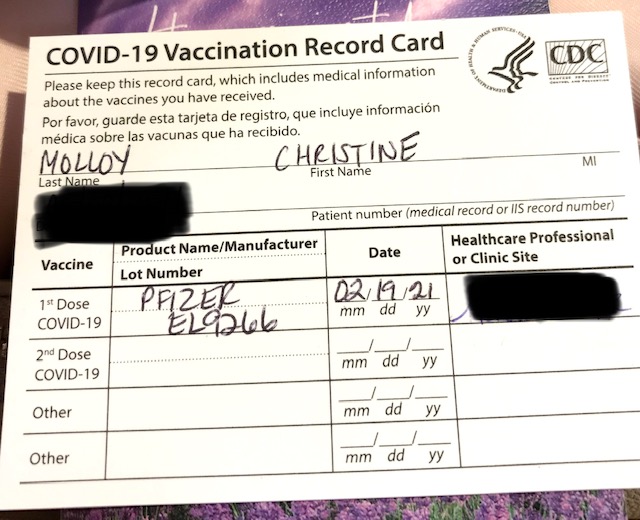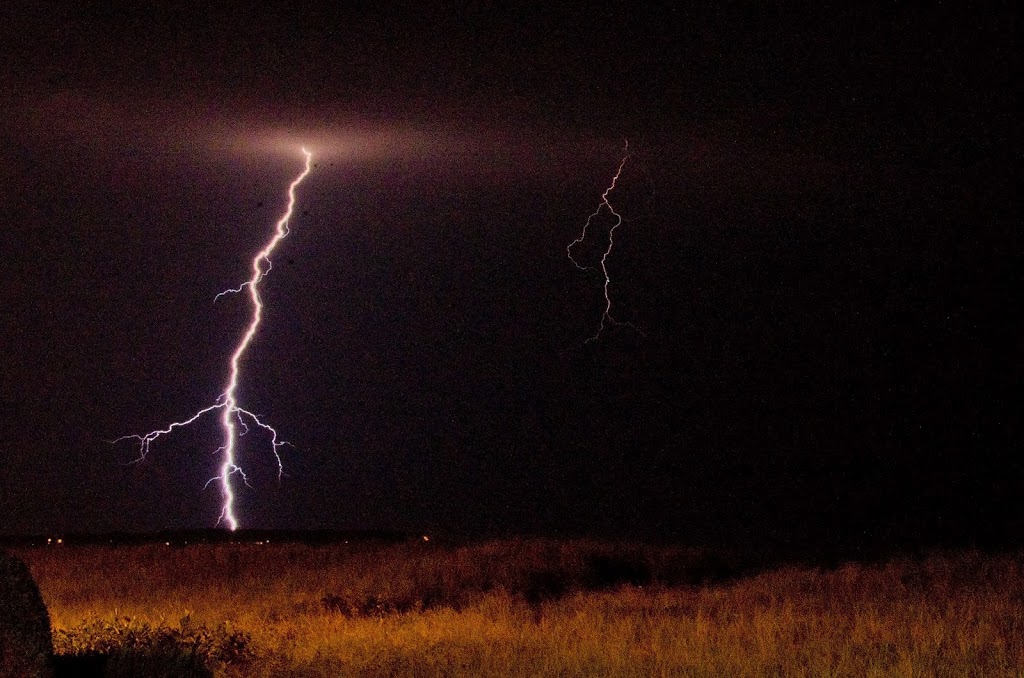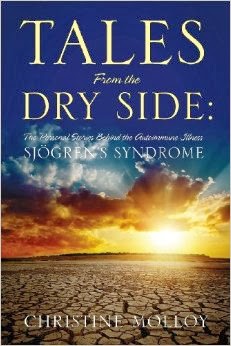
What a year it has been.
As my pastor mentioned today in his sermon, when everything (including my church) closed down last March, we never thought we’d still be in the midst of this pandemic a year later. Heck, we were thinking we’d be back in church for Easter services. Little did we know…
In Massachusetts, like many other states, the vaccination process is slow going. As many of you probably already know, the guidelines for when certain groups of people get the vaccine is determined individually by each state. What this means is that someone who is a teacher or a restaurant worker, for example, may get their vaccine earlier, or later, in one state as compared to where I live in Massachusetts.
Because of differences in how each state prioritizes their groups and also differences in how quickly a state moves through the phases, I had been watching many of my friends, who have Sjogren’s and other related medical conditions, getting their first, and even second, vaccine doses. So, I was patiently waiting for Massachusetts to get to my phase while I was eagerly keeping track of governor updates because based on what I had seen occuring with the previous groups, I knew it would be a challenging process.
Due to my medical conditions, I am considered high risk for COVID-19. I also fall into the vaccination group of high risk people with two medical conditions as defined by the state and the CDC. I actually have three of the conditions, so there is absolutely no question of what group I fall into. This puts me in the Phase 2B group in Massachusetts, along with the 65+ folks.
It’s hard to wait in anticipation of something that will eventually change so many facets of your life. With some rare exceptions, I have been on lockdown since the first weekend of March 2020. I remember the weekend vividly because it was the last time I had been in a restaurant. My husband and I had gone to one of our favorite local establishments to have lunch with my stepson and his girlfriend. Then, everything got shut down.
Since I have several conditions that make me high risk for either getting COVID-19, or getting sicker than the average person if I do get it, my husband and I have taken the precautions seriously and our entire lives have changed because of it. And the closer I got to the possibility of starting the vaccine process, the harder it got to wait.
I am on disability because of my health, but I do still have a valid nursing license that I keep up-to-date. That license would be all that I would need to get vaccinated in our state’s first phase, which was for medical personnel. Many people encouraged me to do so. If I am being completely transparent, I briefly considered it. I had been isolated for ten months at that point, I was struggling with depression at times, and I was starting to be get more concerned about my mental health than my physical health. I did a lot of praying about it and when I thought about it and listened to what God was saying, it just didn’t feel right. If I was working as a nurse, of course I would have signed up for my vaccine. But, I wasn’t. I could (mostly) stay safely in my house and by doing so, not take a vaccine away from a healthcare worker or person over age 75.
About two days after I made that decision to wait, a friend of mine, who knows my situation, contacted me to tell me that one of the mass vaccination sites in Massachusetts (coincidentally, the one closest to me) was opening up appointments for those with two or more high risk health conditions and 65+. I didn’t understand why since I hadn’t heard anything on the news about it, especially since it was a holiday.
I went to the facility’s direct link my friend gave me and sure enough, you could register for an appointment if you have two or more high risk conditions and there were plenty of appointments to choose from, so I secured an appointment for a Friday afternoon, which is when I wanted to go in case I had a reaction or side effects over the weekend. That was only four days away. However, when I shared the registration link with two people in similar situations, the 65+/high risk option would disappear, reappear, disappear again and they couldn’t register. I started to wonder if it was a mistake or a computer glitch.
A little over 36 hours later, our governor advanced the schedule for the 65+ and high risk groups to be vaccinated, but appointments at the facility I signed up for disappeared almost instantly because so many people were making their appointments directly through the facility’s site. I do know a few people close to me who were able to get appointments at other sites, but the state registration system initially failed and when it finally did go back up, appointments were taken up very quickly.
This would probably be the time to mention that I did not come to this decision to get the vaccine lightly. Like everyone else, I had known about the vaccine for a while and I really struggled in coming to terms with getting it. I am not anti-vaccination by any means. But, I also know enough about science and medicine to know that there was a potential for complications, especially in regards to the autoimmune illnesses I have. What if the vaccine caused more autoimmune issues? Would there be any long-term consequences to getting the vaccine? How long would it work for?
Some of you know that back in 2012, I was stricken with some scary symptoms that doctors could not figure out right away and I ended up being diagnosed with a mild form of Guillain-Barre, a neurological autoimmune disorder which back then, was loosely associated with the flu vaccine. We do not know if that was the cause in my case, but I could have died. And, I was told not to get a flu shot ever again. However in recent years, new research came out that showed the chances of getting Guillain-Barre from a flu shot was LESS than if you got the flu because the flu itself can lead to Guillain-Barre. This was the first season in 10 years I got a flu shot.
These were the kinds of things that concerned me though about the COVID-19 vaccine. That being said, I did a lot of my own research and had conversations with my medical providers, who, despite knowing there have been no trials of the COVID-19 vaccine in autoimmune patients, overwhelmingly suggested I get the vaccine. I also received some valuable information from a person I know very well who has a connection with someone who worked on the Pfizer vaccine and after talking to him and learning more about the technology in developing the vaccine and how long mRNA has been around, I felt more confident that it was the best course of action for me.
Lastly, I thought about the philosophy I have incorporated into my life since my Sjogren’s journey started and that is: don’t let fear of the unknown future prevent you from living today. While I have learned some valuable lessons during this pandemic, I am not safe in this world from COVID-19 without a vaccine.I strongly feel that God wants me back in society as much as my health will allow me to be and he has left this opportunity at my door to do so.
Two days ago, I went and received my first dose of the Pfizer vaccine at a mass vaccination site. I was hoping to get the Pfizer vaccine, but would have taken Moderna as well. My husband drove me for two reasons…because I do have an allergy to CT scan contrast and because we were going during what was supposed to be a winter storm (it fizzled) and if there were going to be wasted doses due to people not showing up, I was hoping he could get vaccinated, which ended up not happening.
The process went much smoother than I anticipated although I have to admit, I was scared. The site wasn’t overcrowded like I thought it would be, there was no wait, and the whole process seemed to be flowing well. I was told that I would have to stay twice as long for observation because of my allergy history, but that actually reassured me that the people doing the vaccinations were on the ball. The injection itself was painless, which was surprising. My blood draws are more painful than the COVID injection. I got a vaccination card, a second appointment for three weeks, and told what to do in the observation area. Hopefully, there will be enough vaccine for my second dose.
Once I sat in the observation area, I almost immediately got a bad headache, which left me pretty quickly, maybe 5-10 minutes later. We picked up some dinner and all was going well until about two-three hours later when my arm started to hurt, a lot. I’ve had a lot of experience with this because as an adult, I’ve had several pneumonia vaccines, tetanus, pertussis, etc., but this was certainly the most pain I’ve ever had from a vaccine. I took some Tylenol and put an ice pack on it, which did help some.
I’m now approaching 48 hours post-vaccination and I have felt worse this weekend than I thought I would, especially since I heard that it’s the second dose that gives you the worst side effects. I’ve experienced what feels like mild cold symptoms, headaches off and on, nausea, one episode of dry heaving yesterday morning, some dizziness, and severe fatigue. Except for the fatigue, none of this has been dramatic and overall has been quite manageable with rest and fluids. Also, you must keep in mind that since I have autoimmune diseases, my body makes a life mission out of attacking my healthy cells on a daily basis, so introducing something like the COVID vaccine is a lot for my body to handle.
So, I wait. I am not considered fully vaccinated until two weeks after my second dose, which like I mentioned, is in three weeks. However even then, I will not be going back to a life of freedom because even if you are fully vaccinated, you can still spread the illness to others and I will not take that chance with my husband, who will be waiting a while to be vaccinated if Massachusetts doesn’t improve the vaccination process. We have had conversations about this and have decided that until he is vaccinated, I will only be adding going to stores (which he has been doing) and seeing my parents (who have been cautious) to my list of limited activities. Church, social gatherings, eating out, events, and other things will have to wait.
I’m more than O.K. with this plan. First, and most importantly, my husband has carried the burden of being married to a high risk person during a pandemic for almost a year now, he has sacrificed a lot, and never once, has he complained about it. Now it is my job to do the same for him.
Second, in addition to Jesus, I’m hanging on to something more valuable than all those other things I listed…
I have hope.
From the moment I clicked that button to complete my vaccination registration to the moment I got that shot, to the moment, I felt my first side effect and thought, “that’s my body building up immunity”, I have felt hope…not for a life that looks like the one I had pre-pandemic, but rather, a life that will be more appreciated and more intentional. A life that will hopefully be more safe.
My prayer is the same for you.
(As an aside, I am off social media for Lent, but my blog posts will be posted. If there is some way I can help you with vaccine appointment registration or navigating the system in Massachusetts, please contact me at cmolloy435@charter.net).









